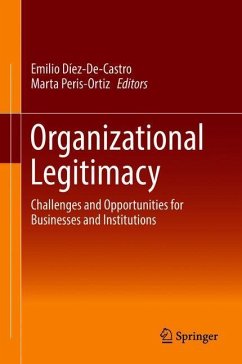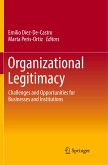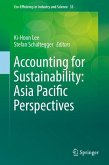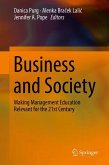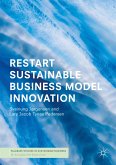This volume explores organizational legitimacy in business, featuring examples from a variety of industries around the world. Synthesizing the most current theoretical insights and best practices, the contributing authors examine the ways in which organizational legitimacy can be understood, its perceived influence on the market, and the relationship between organizational legitimacy and overall organizational success. The authors draw from different methodological perspectives to develop a holistic approach to organizational legitimacy that transcends the traditional concepts of corporate reputation, business ethics or corporate social responsibility.
Historically, efforts to understand how organizations acquire, manage and use legitimacy have applied insights from institutional theory, resource dependence theory, organizational ecology and stakeholder theory, but the field has remained fragmented, despite the profound implications of achieving legitimacy for ensuringorganizational stability, survival and sustainability through access to capital, resources and business opportunities, as well as problem solving, performance measurement and stakeholder support. Presenting case studies of successful initiatives, the book addresses:
· How organizational legitimacy is defined and measured
· How organizations achieve legitimacy and how they acquire resources
· How different stakeholders (e.g., consumers, investors, employees) make legitimacy judgments and resource allocation decisions
· Whether audiences in the same socio-cultural context arrive at shared legitimacy judgments with regard to a focal organization
Historically, efforts to understand how organizations acquire, manage and use legitimacy have applied insights from institutional theory, resource dependence theory, organizational ecology and stakeholder theory, but the field has remained fragmented, despite the profound implications of achieving legitimacy for ensuringorganizational stability, survival and sustainability through access to capital, resources and business opportunities, as well as problem solving, performance measurement and stakeholder support. Presenting case studies of successful initiatives, the book addresses:
· How organizational legitimacy is defined and measured
· How organizations achieve legitimacy and how they acquire resources
· How different stakeholders (e.g., consumers, investors, employees) make legitimacy judgments and resource allocation decisions
· Whether audiences in the same socio-cultural context arrive at shared legitimacy judgments with regard to a focal organization

